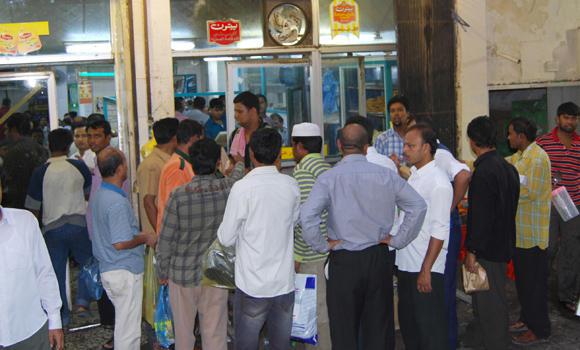
Jeddah, May 3: Saudi banks are considering limiting the amount of money expatriates send home, a bank official told Arab News. This is to comply with Ministry of Labor regulations being phased in as part of the Nitaqat program.
These regulations would see banks prevent expatriate workers from transferring sums more than their monthly income and freezing the accounts of workers who have not rectified their status.
However, Talat Hafiz, secretary-general of media and education for Saudi banks, told Arab News that banks have no intention to freeze accounts. “The banks cannot take such action. It is not their business to decide on these matters. The only party authorized to take such action is Saudi Arabian Monetary Agency,” he said.
“Saudi banks report to SAMA. So far we have not blocked anyone from opening an account, even those not licensed to work in the Kingdom.”
Adel Al-Hawwar, senior executive vice-chairman of retail banking at the National Commercial Bank, told Arab News that “it's unlikely that the banks will take this step at present. There is a system to protect wages, and it is meant to protect the rights of workers. It is also meant to ensure companies pay the salaries of workers as stated in their contracts.”
Hattab Al-Enezi, spokesman for the Ministry of Labor, told Arab News that the system of wage protection will start with large companies employing 3,000 employees and more. “Then we'll gradually move to companies that employ fewer people. Each company will be given two months to comply with the decision,” he said. “There is ongoing coordination between the Ministry of Labor and SAMA to keep checking on whether or not employers are complying with the regulations regarding worker payment and wage protection and other matters,” he added.





Comments
Add new comment